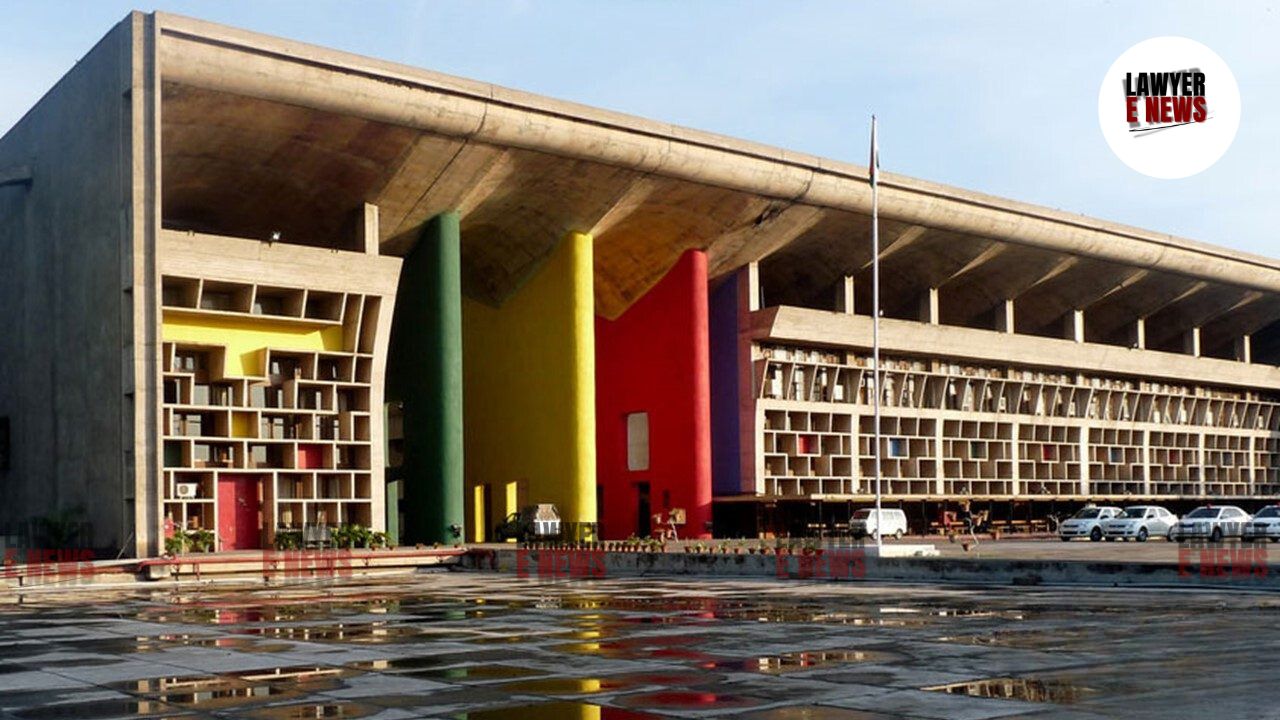-
by Admin
15 February 2026 5:01 PM



Doctrine of Res Sub Judice Prevents Conflicting Decisions - Punjab & Haryana High Court dismissed a revision petition filed under Article 227 of the Constitution challenging the trial court’s order staying a subsequent suit under Section 10 of the Code of Civil Procedure (CPC). The Court, while reiterating the mandatory nature of Section 10 CPC, held that the matter in issue in both suits was directly and substantially the same, and the outcome of the earlier suit would operate as res judicata in the subsequent suit.
Delivering the judgment in Dheeraj Gupta and another v. Ritu Gupta and others, Justice Pankaj Jain emphasized that Section 10 CPC is designed to prevent conflicting judgments and multiplicity of litigation. He observed:
"The purpose of Section 10 CPC is to avoid parallel proceedings and ensure that courts of concurrent jurisdiction do not adjudicate the same matter simultaneously, which may lead to contradictory verdicts."
The dispute revolves around ownership and possession of House No. 12, Sector 8, Panchkula. The plaintiffs in the first suit, Ritu Gupta (widow of Neeraj Gupta) and her two children, claimed ownership of a 1/2 share in the property, asserting that the property was purchased with ancestral funds and that an oral family settlement in 2006 allocated the first floor to them. Following threats of dispossession, they sought a declaration of ownership and a permanent injunction to protect their possession.
Subsequently, Dheeraj Gupta and Veena Gupta (the petitioners herein) filed a second suit, claiming Veena Gupta was the sole owner of the house and that Ritu Gupta and her family were mere licensees who had no ownership rights. They sought mandatory injunction for possession of the first floor and recovery of mesne profits for alleged illegal occupation.
When the defendants in the second suit (Ritu Gupta and others) moved an application under Section 10 CPC, the trial court stayed the subsequent suit, holding that the core issue in both suits pertained to the title and possession of the same property. Aggrieved, the petitioners filed a revision petition before the High Court under Article 227 of the Constitution.
The High Court observed that for Section 10 CPC to apply, the following conditions must be met:
The matter in issue in both suits must be directly and substantially the same.
The earlier suit must have been instituted between the same parties or their representatives.
The decision in the earlier suit should operate as res judicata in the subsequent suit.
Analyzing the facts, the Court held:
"The title to the suit property is the core issue in both suits. If the plaintiffs in the earlier suit succeed, the defendants in the subsequent suit (plaintiffs in the first suit) cannot be evicted nor can they be saddled with mesne profits. Thus, the decision in the earlier suit will directly affect the subsequent suit, satisfying the test of Section 10 CPC."
The petitioners argued that the causes of action and reliefs in the two suits were different, rendering Section 10 CPC inapplicable. Rejecting this contention, the Court reiterated the principle laid down in Aspi Jal v. Khushroo Rustom Dadyburjor (2013) 4 SCC 333:
"It is immaterial what further reliefs are claimed in the subsequent suit if the matter in issue is the same. The provision will apply as long as the matter in controversy is directly and substantially identical in both suits."
The Court clarified the limited scope of interference under Article 227 of the Constitution, which is confined to ensuring that the subordinate court acts within its jurisdiction. Relying on Estralla Rubber v. Dass Estate (Pvt.) Ltd. (2001) 8 SCC 97 and M/s Garment Craft v. Prakash Chand Goel (2022) 4 SCC 181, the Court held:
"The High Court, while exercising jurisdiction under Article 227, does not act as an appellate court to correct errors of fact or law. It can only interfere in cases of jurisdictional error or perverse findings. The trial court’s decision to stay the subsequent suit under Section 10 CPC was well within its jurisdiction and based on sound reasoning."
The Court elaborated on the principles underlying Section 10 CPC and the doctrine of res sub judice:
Avoiding Conflicting Decisions: The primary objective is to prevent parallel trials that may lead to contradictory findings on the same issue.
Preventing Multiplicity of Proceedings: Section 10 ensures judicial efficiency by staying subsequent suits until the earlier suit is decided.
Mandatory Nature: The provision is not discretionary; it must be applied when the conditions are met.
The Court concluded that the trial court correctly stayed the subsequent suit under Section 10 CPC, as the matter in issue—ownership and possession of the property—was directly and substantially the same in both suits. The revision petition was dismissed, with the Court holding:
"The trial court rightly stayed the subsequent suit to prevent conflicting decisions and ensure that the earlier suit's findings operate as res judicata. There is no jurisdictional error or perversity in the trial court’s order warranting interference under Article 227."
Date of Judgment: December 3, 2024
